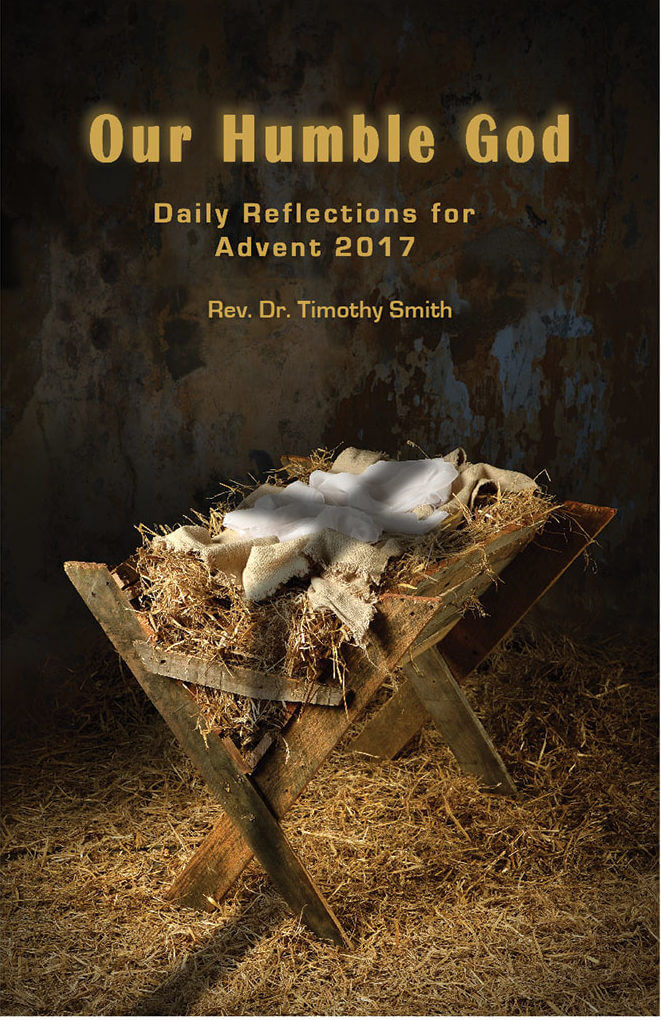PRAY:
Settle yourself into prayer and get ready to reflect on the Word of
God.
READ:
If then there is any encouragement in Christ, any consolation
from love, any sharing in the Spirit, any compassion and sympathy,
make my joy complete: be of the same mind, having the same love,
being in full accord and of one mind. Do nothing from selfish
ambition or conceit, but in humility regard others as better than
yourselves. Let each of you look not to your own interests, but to the
interests of others. Let the same mind be in you that was in Christ Jesus.
Philippians 2:1-5
“Don’t touch that Christmas tree!” “Please!” “No!” “Stop! [CRASH!] Does it sound familiar? How can she be such a sweet little angel one moment and be throwing a full out temper tantrum the next! The battle for control starts early. Me, Myself, and I like to get our own way!
It’s this battle to get one’s way that is agitating the Philippian Christians and can agitate us today. This means that the Christ Hymn’s call for humility and self-giving can unsettle us. Admittedly, it goes against our Adamic DNA.
The Christ Hymn calls for a truly supernatural way of living, a Christlike way of acting. It is the “mind of Christ”, after all, and not ours. The Christ Hymn strikes readers as nothing short of a Copernican revolution as it upends our thinking that we are the center of the universe and that everything revolves around us. The Bible has a word for this Me-First way of thinking and acting: sin. Tragically, this inherited predisposition traces all the way back to Adam; it causes me to think and act as if everyone finds their existence in relationship to me. I don’t remember needing anyone to teach this to me; it came to me quite naturally. The sense of “we” is lost in our lives and replaced by the lonely “I”.
This means that something radical and far-reaching has to happen inside of us if we are to have the mind of Christ. Christ will actually have to come and live within us. This remedy is what the Bible calls “being born from above” (New Revised Standard Bible, John 3:3), or “being born again” (New International Version, John 3:3). This miraculous wonder of being made God’s new people is set forth in the Gospel of John: “But to all who received Christ, who believed in his name, he gave power to become children of God” (John 1:12).
This is what Christmas is about! Christmas is about nothing less than the Son of God being born in Bethlehem so that He might then be born in us. He came down to share in our humanity that we might share in His divine nature (See 2 Peter 1:4). He makes us sons and daughters of God empowered to think more and more like Him!
This is why Paul begins today’s text emphasizing the new life we have “in Christ”: “If then there is any encouragement in Christ, any consolation from love, any sharing in the Spirit, any compassion and sympathy.” Because of our life “in Christ” we can know Christ’s “encouragement”, the “consolation” of His love, and His “sharing” in the life of the Spirit. Our life in Christ opens a new way of living, a supernatural empowering to think and act like Him. Paul so experiences life “in Christ” that he can declare to the Philippians: “for to me living is Christ,” and “I can do all things through him who strengthens me” (Philippians 1:21; 4:13).
With Christ as our life we can live more humbly and put others first! Christ is the Vine, we are the branches, and the fruit of His life grows in us as we abide in Him (John 15:1-5). What a great delight and freedom to discover that life is not about us, but about Christ. This can become our own Copernican revolution! Our lives will finally be centered…centered in Him!
REFLECT:
- Practically speaking, what would a “Copernican revolution” look like in your life?
- The apostle Paul says that for him, “living is Christ”. What would it mean for you to see Christ as empowering your life?
“God is not ashamed of the lowliness of human beings.
God marches right in. He chooses people as his instruments and
performs his wonders where one would least expect them.
God is near to lowliness; he loves the lost, the neglected,
the unseemly, the excluded, the weak and broken.”
Dietrich Bonhoeffer, God Is In The Manger



